History
IDEA was started in 1989 by Shandi J
Modi with the objective of conducting rigorous and original research to help
public and private sector participants deal with the problems of managing risk
and conducting appropriate policy in the foreign exchange and bond markets.
IDEA soon established itself as an
important part of the fabric of the capital markets, influencing the daily
risk-taking activities of the leading players in these markets, as well as
advising central banks on the conduct of monetary policy, particularly in the
management of market expectations.
IDEA and its advisors were involved in some
of the most significant events in the financial world in the 1990s,
establishing a role as a bridge between the policy community and the financial
markets.
Sir Alan Walters, who joined us as a
principal advisor in 1991 was a consistent proponent of the GBP abandonment of
the ERM (exchange rate mechanism),
and played a key role in advising governments in emerging markets on
appropriate currency regimes. He also provided critical insights on subjects
such as German reunification.
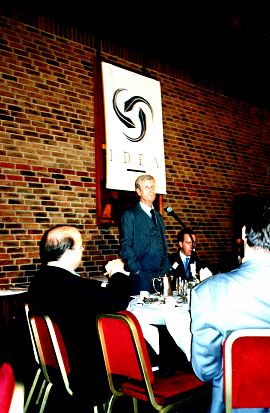
With IDEA, which by then had a voice to the “mind
of the market”, Sir Alan’s views effectively gave confidence to financial
markets to correct the error of the ERM and other semi-fixed currency regimes,
including the UK in September of 1992 and Sweden in November of 1992.
Professor Helmut Schlesinger, former
president of the Bundesbank, joined the IDEA Advisory Board in 1995. As
is well known, Professor Schlesinger played a
pivotal role in the creation of the European Central Bank and oversaw the
monetary unification of Germany. Professor
Schlesinger spoke at several IDEA events and directed IDEA clients on why the
ECB and the single currency had to be formed.
He also used the IDEA Advisory platform to communicate with the
financial markets the structure of and inherent checks and balances leading to
the creation of the single currency.
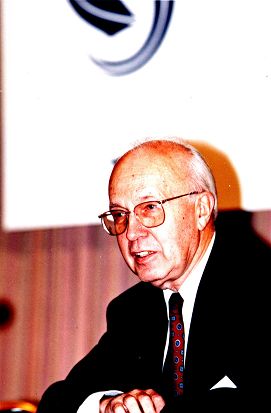
In 1996 IDEA held a seminar in Hong Kong
on the subject of ‘Future Shock: How Asian Central Banks should handle a
financial crisis”. Among the
speakers were Professor Helmut Schlesinger, Joseph Yam, Governor of the HKMA
and Dr Zeti, the current governor of Bank Negara Malaysia.
They highlighted the existing core issues at the time and key risks to the
Asian economy to an audience of leading financial market participants.
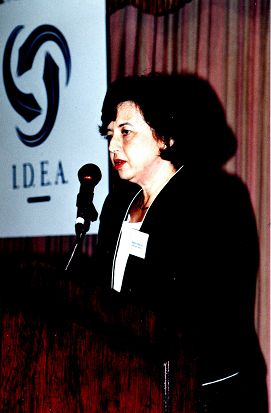
Within ten months, the exact risks
that the IDEA conference had highlighted materialised and became what is now
known as the Asian Financial Crisis of 1997. The essence of the valuable
content from this IDEA event was was distributed to IDEA clients worldwide,
including policymakers, and helped them deal more effectively with the costs
and opportunities that arose from the crisis.
Nick Stern, Willem Buiter, Ng Kok Song
and Professor Schlesinger along with leading financial market participants,
gathered at the Merchants Taylor’s hall in London in 1999.
During the conference, the speakers
clarified the thinking on some of the critical economic and market issues of
the day:
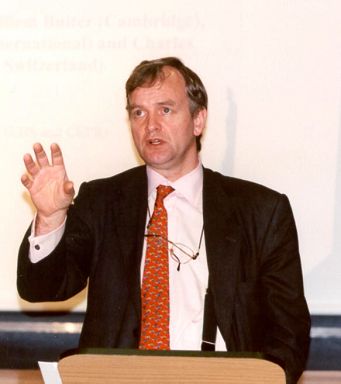
Willem Buiter
highlighted the ‘Bubble in the US equity market based on the lack of
earnings of many leading Internet companies’.
Nick Stern,
who at that time was Chief Economist of the EBRD, correctly forecast the
economic success of Eastern Europe seen over the last five years.
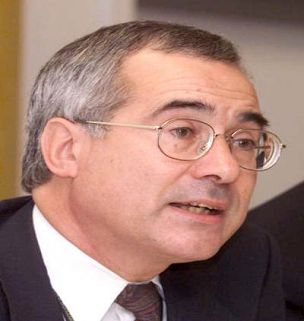
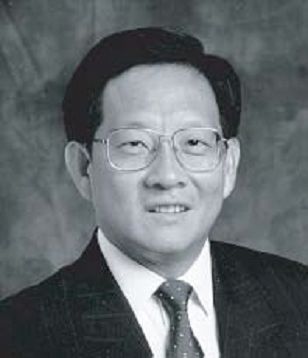
The positive ‘underlying’ outlook for
the Asian economies after the 1997/98 Asian crisis was bought back into
perspective by Mr Ng Kok Song, MD of Public Markets, GIC.

